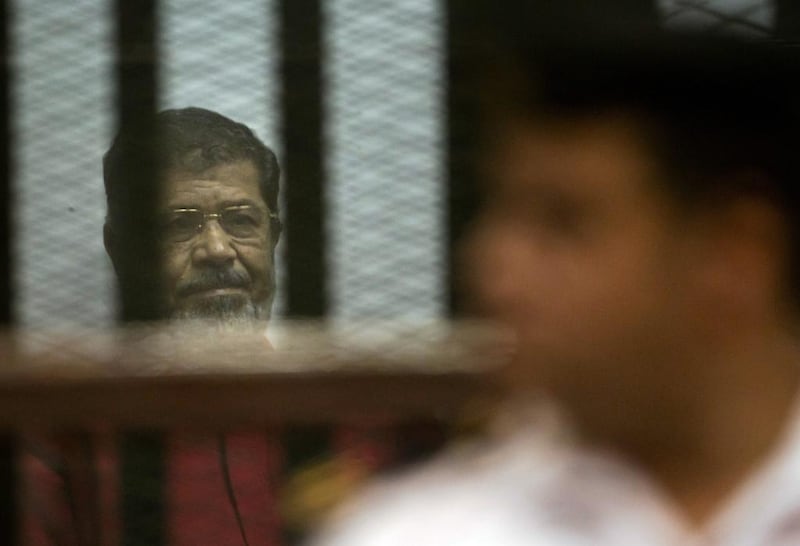The UK government has rejected calls by an all-party group of MPs to engage more closely with the Muslim Brotherhood because of the group’s “highly ambiguous relationship with violent extremism”, according to a document released Thursday.
Officials said that the former Egyptian government of Mohamed Morsi had not done enough while in power to demonstrate political moderation or a commitment to democratic values. Events since then had done nothing to change their view, according to the paper.
The government was responding to a report published last year by an influential group of lawmakers on the parliamentary foreign affairs committee [FAC], which had called on the UK to begin “discreet relations” with exiled officials from the former Morsi government, which was ousted in a military coup in 2013 after only one year in power.
The government rejected the call and said that any group’s attitude towards the use of violence was one of three key principles in deciding whether diplomats should begin talks. Since losing power, Mr Morsi’s Freedom and Justice Party had stoked sectarianism with comments about Pope Francis, the government claimed without giving further detail.
It also said that the Egyptian Muslim Brotherhood had in recent months denied ISIL involvement in attacks on Coptic Christians in Europe, even though the group had claimed responsibility. Instead it had accused the current Egyptian government of Abdel Fattah El Sisi – the current president who led the 2013 military coup - of “organising or facilitating the attacks,” according to the government’s response. Scores of Christians have been killed in sectarian violence in 2017 with the population, who make up an eighth of Egyptians, targeted repeatedly by ISIL.
“The Government does not agree with the FAC that we should be engaging with the Egyptian Muslim Brotherhood at this time,” the government said in its latest response to the MPs’ report “Political Islam and the Muslim Brotherhood Review”.
It said that there was a “fundamental requirement for any organization to reject violence unambiguously, confront violent extremism and commit to constitutional politics” before it entered into discussions.
Then prime minister David Cameron commissioned a report in 2015 which concluded that association with the Muslim Brotherhood should be considered a possible indicator of extremism, but stopped short of banning the organisation. It said Thursday that it was keeping that decision under review while continuing to assess developments in the Muslim Brotherhood movement in the UK “including its statements and actions”.
It said that it was refusing visas to members and associates who were on record of having made extremist comments, and ensuring that charities with links to the Brotherhood were not misusing assets.
The government response also denied suggestions by the MPs that its 2015 report into the Muslim Brotherhood had been undermined by the impression that it had been influenced by the group’s critics in the Gulf. Critics had pointed to a potential conflict with the review conducted by Sir John Jenkins, a former British ambassador to Saudi Arabia until 2015.
The choice of Sir John was made as he was one of the Foreign Office’s most senior and respected diplomats and reflected “his extensive experience and knowledge of the Arab world,” said the government in its response.





